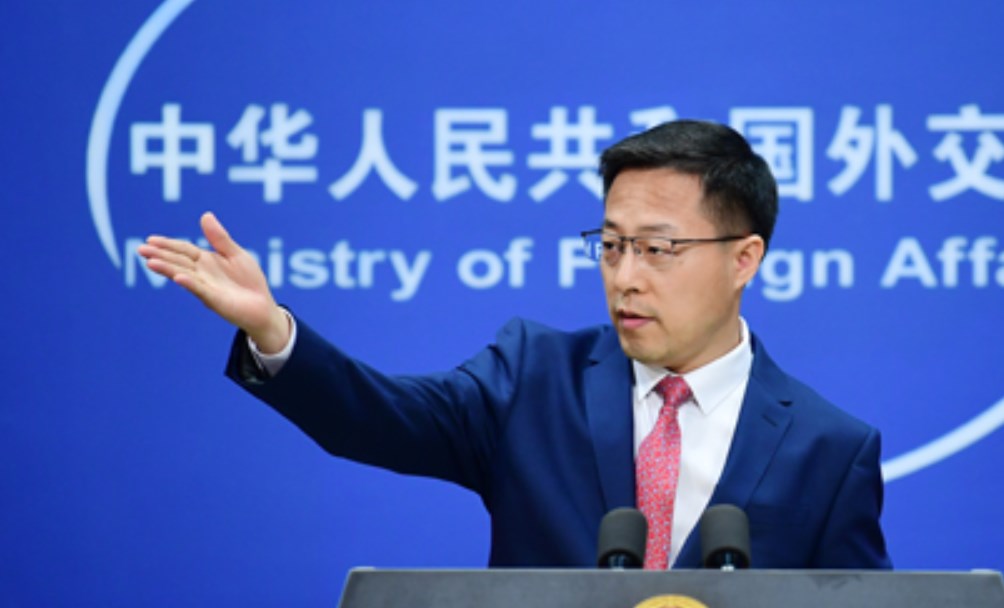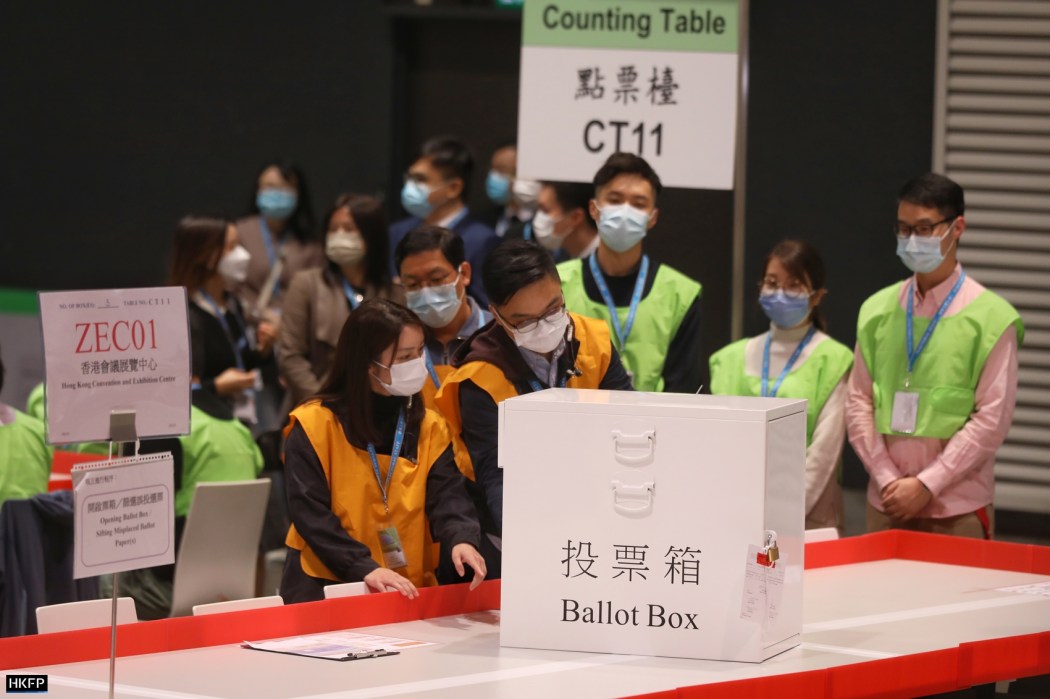The official White Paper on “Hong Kong Democratic Progress Under the Framework of One Country, Two Systems,” released on December 20, 2021, affirmed that during the British colonial administration, there was no democracy in Hong Kong.
The Central Political Committee devised the “One Country, Two Systems” policy in early 1980s, and it is the backbone of our political system. The White Paper also states that there is no such thing as a “one-size-fits-all” democratic paradigm.
See also: Rewriting history after the 2021 ‘patriots’ poll

There are numerous approaches to achieving democracy, none of which are identical. It is an undemocratic act in and of itself, to attempt to measure or quantify democracy. Chen Dong, deputy director of the Liaison Office of the Central People’s Government in the Hong Kong SAR, emphasised that Hong Kong seeks a viable democracy that promotes development and serves the people, rather than something superficial.
The key to democracy is the people’s ownership of their country. Our Central Government must supervise Hong Kong’s democratic growth, according to Chen Dong – it was time to wake up from the “American-style democracy delusion.” There was no mention of democracy or universal suffrage in the Sino-British declaration signed in 1984.
Hong Kong’s pathway to democracy and universal suffrage were brought about, and are governed by, the Basic Law. Universal suffrage is a goal; yet, getting there is a process that must be progressed in accordance with current circumstances in Hong Kong. Four Chief Executives and seven Legislative Councils have been elected in conformity with the Basic Law since the establishment of the Hong Kong SAR.

On December 19, 2021, Hong Kong voters elected the 7th Legislative Council. According to Hong Kong’s Electoral Affairs Commission Voter data, voter turnout was 30.2 per cent. Some commentators argue that the voter turnout is low in comparison to 2016 due to a lack of meaningful opposition, and that this so-called lack of opposition voter participation has hampered Hong Kong’s democratic progress.
On the contrary, Hong Kong’s first district council election in 1982 had a turnout rate of around 30 per cent, which was considered a success at the time. In actuality, high voter participation isn’t necessarily a positive thing; it typically implies societal over-mobilisation and is often tied to political agendas, as the 2019 district council election proved.
Additionally, according to the Chinese Foreign Ministry spokeswoman Zhao Lijian, the election turnout was attributed to the combination of the Covid pandemic, anti-China individuals aiming to destabilise Hong Kong and various external influences. Furthermore, anti-China activists have traditionally exploited inadequacies in the electoral system to disrupt Legislative Council and District Council elections.

The atmosphere surrounding the election has become increasingly politicised and extreme. For months, western countries have condemned Hong Kong’s new electoral system. In response to these western countries interfering in Hong Kong affairs, China and Hong Kong authorities have underlined that they are the ones who best know how to ensure the prosperity and stability of the city.
Embracing our current election system is perhaps the most crucial lesson for the Hong Kong’s opposition. It may be novel and unprecedented, but it will endure the test of time, solidifying Hong Kong’s democratic and economic development and providing the city with much-needed stability and prosperity. Discrediting the new electoral system may provide moral comfort for some, but it is unlikely to assist Hong Kong in maintaining its unique realities and qualities.
Democracy has a long history and continues to evolve over time. It is rooted in many countries’ historical and cultural traditions, as well as the practical exploration and wisdom of their people. There are various types, forms, and practices of democracy, and it is about solving problems that affect people, not just putting on a pretty front.

Democracy is a universal human right, not a privilege enjoyed by a select few. It is up to the population of a country, not a few foreign outsiders, to decide whether or not it is democratic. Many Chinese authors believe that Western-style democracy should not be the only form of democracy. Different democratic systems can coexist harmoniously in China’s “democracy,” which is customised to its own tradition.
Our Central Government examines the political achievements of all other countries without exception, but does not adopt their democratic models. China develops its own democratic model based on the principle that the best model is always the most appropriate model. China’s system is termed the Whole Process Democracy, according to President Xi Jinping’s proposal.

By integrating democratic elections, political discussion, decision-making, and control, it legitimises people’s participation in daily political activity at all levels. The Chinese approach to democracy is pragmatic, and Hong Kong must shake off its belief in the “fantasy of American-style democracy.”
China evaluates its “national conditions and realities” and demonstrates its own truth rather than merely mimicking other people’s democratic models. The Chinese Whole Process Democracy system is congruent with the country’s unique characteristics, while simultaneously expressing the “universal yearning of mankind for democracy.”
Arrogance, prejudice, and hostility toward other countries’ efforts to establish their own paths to democracy, as well as a false superiority and unrelenting imposition of their own democratic models on others, are, in my opinion, the real barriers to democracy.

It’s delightful to see Hong Kong reverting to its original path of “One country, Two systems,”. The definition of democracy in China and Hong Kong is not impacted by the failures of democracy in other nations. This term has only been utilised in the west to win elections and is only there to represent dominant interest groups rather than the interests of the people and the solutions of major societal issues.
After all of the upheaval, Hong Kong is finally on the right track. Over time, democracy, particularly China’s Whole Process Democracy, will flourish. Democracy can be implemented in a variety of ways, and no single system will work for every nation on the globe. The international community as a whole, not just a few infallible countries, should determine whether or not a country is democratic. As the White Paper correctly pointed out, comparing diverse political systems around the world using only one yardstick and interpreting humanity’s complex political culture from a single perspective is undemocratic.
Support HKFP | Policies & Ethics | Error/typo? | Contact Us | Newsletter | Transparency & Annual Report | Apps
Help safeguard press freedom & keep HKFP free for all readers by supporting our team
| HKFP is an impartial platform & does not necessarily share the views of opinion writers or advertisers. HKFP presents a diversity of views & regularly invites figures across the political spectrum to write for us. Press freedom is guaranteed under the Basic Law, security law, Bill of Rights and Chinese constitution. Opinion pieces aim to point out errors or defects in the government, law or policies, or aim to suggest ideas or alterations via legal means without an intention of hatred, discontent or hostility against the authorities or other communities. |

More HKFP OPINION:
HKFP has an impartial stance, transparent funding, and balanced coverage guided by an Ethics Code and Corrections Policy.
Support press freedom & help us surpass 1,000 monthly Patrons: 100% independent, governed by an ethics code & not-for-profit.










